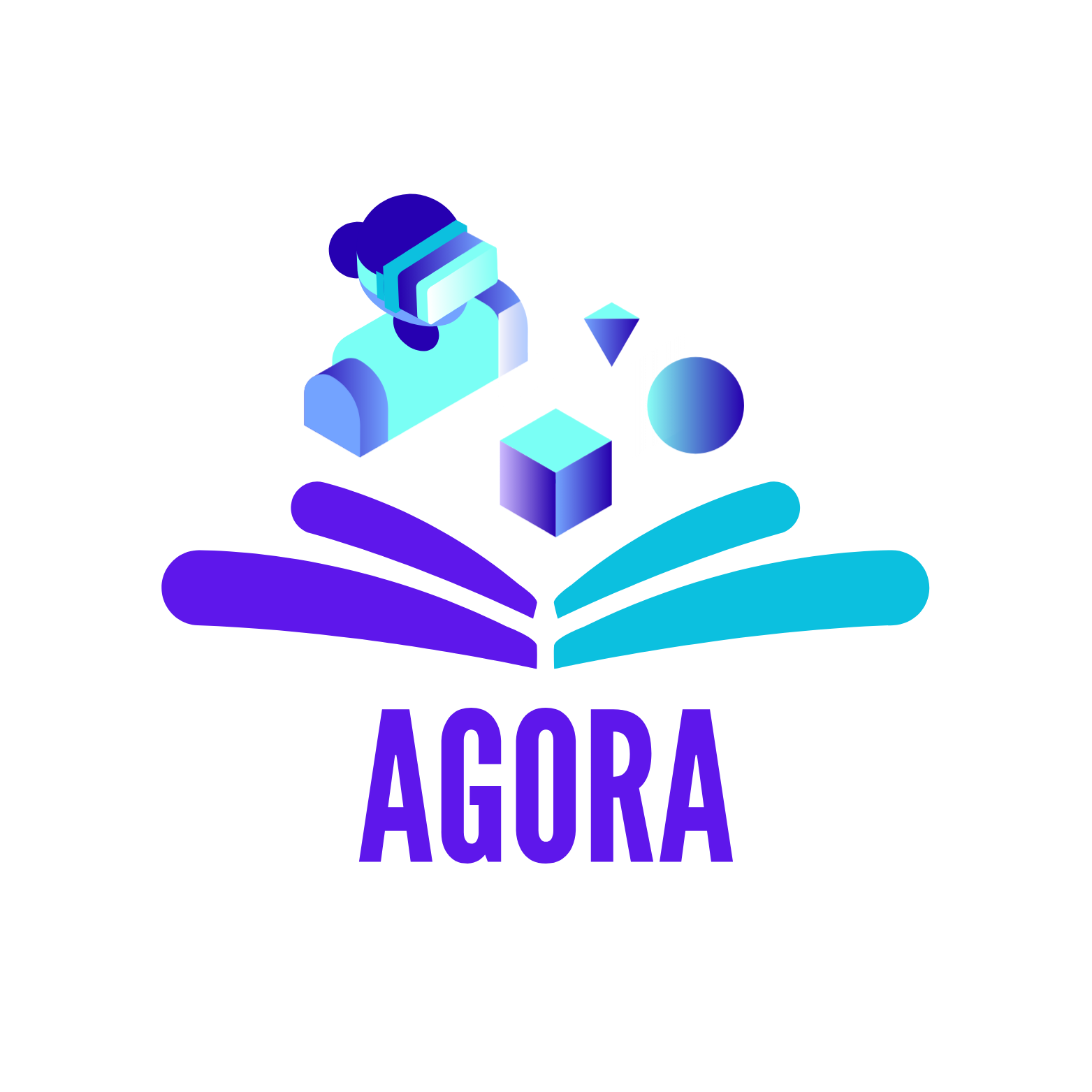Brief Description
This workshop is the first of a series of events focusing on supporting doctoral students who pursue their studies in the areas of the metaverse, augmented, virtual and extended reality, and other virtual spaces. The aim is to introduce doctoral students to innovative research methods and approaches to novel research designs and enable them to engage with research taking place outside the strict confines of their own PhD project.
Attendance is free, and the workshop is specifically designed for the doctoral students of the AGORA network; however, any doctoral student in the early stages of their studies and with an interest in the metaverse, augmented, virtual and extended reality, and other virtual spaces, can attend. Non doctoral students with an interest in immersive environments and the metaverse are also welcome to attend the first part of the workshop.
Date and Venue
October 23rd, 2024 – Online (Zoom link to follow). For those unable to attend, the first part of the workshop will be recorded and made available online.
Schedule of Activities
| Time (CET) Activity Facilitator | ||
| 09:00 – 09:05 | Welcome & Introductions | Efpraxia Zamani, Durham University Business School |
| 09:05 – 09:45 | Epistemology, Ontology, and Axiology in PhD research | Amir Haj-Bolouri, University West |
| 09:45 – 10:00 | Break | |
| 10:00 – 10:30 | Design Science Research | Leona Chandra Kruse, University of Agder |
| 10:30 – 11:00 | Fuzzy Qualitative Comparative Analysis (fsQCA) | Ilias Pappas, University of Agder |
| 11:00 – 11:30 | Action Design Research | Amir Haj-Bolouri, University West |
| 11:30 – 12:00 | Video Methods | Petros Chamakiotis, ESCP Business School |
| 12:00 – 13:00 | Lunch Break | |
| 13:00 – 13:45 | Group Exercise “What research design?”: Doctoral students will work in smaller groups in putting together a proposed research design for a research project. | Efpraxia Zamani, Durham University Business School Ilias Pappas, University of Agder Ariana Polyviou, Cyprus University of Technology Ransome Bawack, Audencia Business School |
| 13:45 – 14:00 | Q&A on the activity | |
| 14:00 – 14:30 | Wrap Up | Efpraxia Zamani, Durham University Business School |
Info for the Group Exercise
Below you will find a brief project description, accompanied by the relevant research questions and philosophical assumptions. You are asked to come up with a research design that can address the research questions provided, and which will be in line with the philosophical assumptions noted.
Description: Extant literature on user experience, while rich, tends to draw primarily from the quantitative tradition, where the measurement of the impact of diverse cognitive and affective factors on user behaviour and satisfaction tends to be prioritised. Most importantly however, such approaches inevitably lead to results that remain silent on people-product relationships. Thus, the aim of this project is to examine the broader perspectives of experience, and the various ways people use technological products, and the roles users identify in them, in order to reveal the relationship users develop with them.
Research Question: How do individuals construct their experience with an IT artefact within their actual life setting, and how is this experience influenced by the IT artefact’s pragmatic and hedonic attributes?
Philosophical assumptions: This project places equal emphasis on the social and cultural context within which the user operates, their background and the IT artefact itself and it follows a qualitative research approach. Specifically, the project adopts the position of ‘internal realism’ which admits to a reality that does not exist independently from people, but solely through their interaction with objects and with other people. We also approach the project with an epistemological stance aligned with interpretive philosophy, which espouses a nondeterministic perspective towards understanding a phenomenon within its cultural and contextual circumstances, following the assumption that access to reality is only possible through the shared social constructions (e.g. language, consciousness and shared meanings) that people inevitably create and assign to the examined phenomena, while interacting with one another, with objects and the world around them.
Things to think about!
Would this be a qualitative, quantitative or a mixed methods study? What kind of a research design do you think would work well? Is there only one design that could work, or are there
alternatives? Consider data collection instruments and methods, sampling concerns and ways to analyse the collated data.
